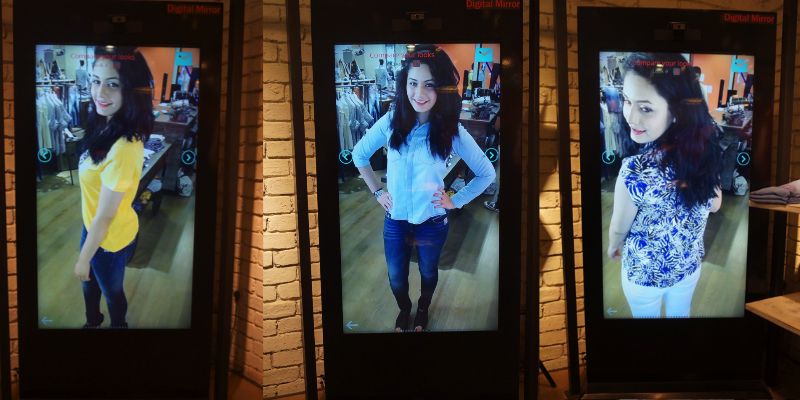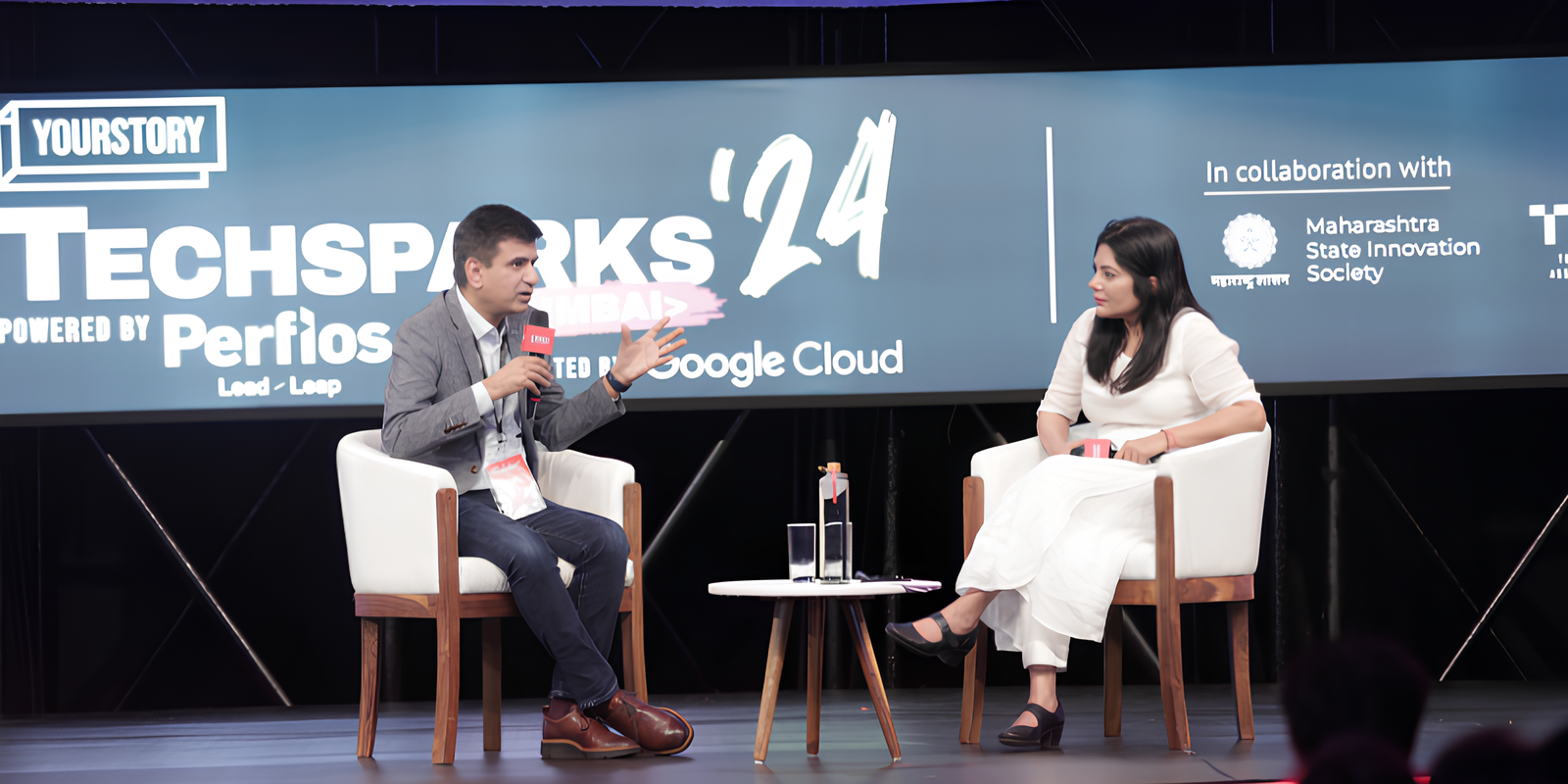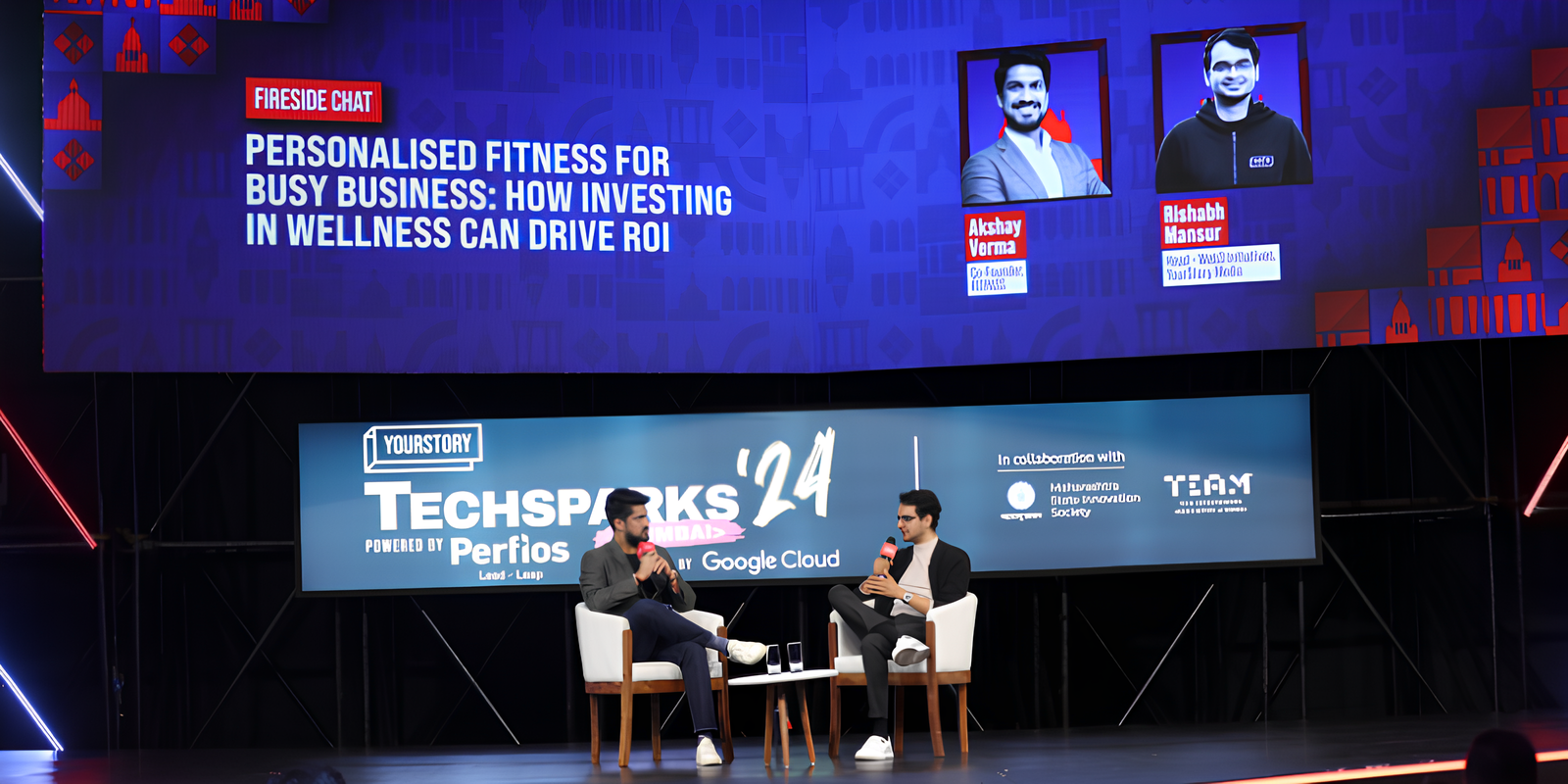This 'mirror' clicks life-size selfies and lets you share on social media
Do you remember when you last shopped for a pair of glasses? If you do, then you would also remember how you couldn't decide which frame to pick after trying out a dozen of them. And of course, you would also recall how you randomly selected a frame about which you were later not sure it was the best of the lot you had seen and sampled. You would also remember that in the end it didn't really matter to you.
But the sheer silliness of such an experience did matter to 42-year-old Hersh Kathuria. While buying glasses, he realised how blurry the process still is for shoppers when they sift through selected items and struggle to shortlist, relying on memory. And he decided to do something about it. Result: A simple yet an ingenious solution.
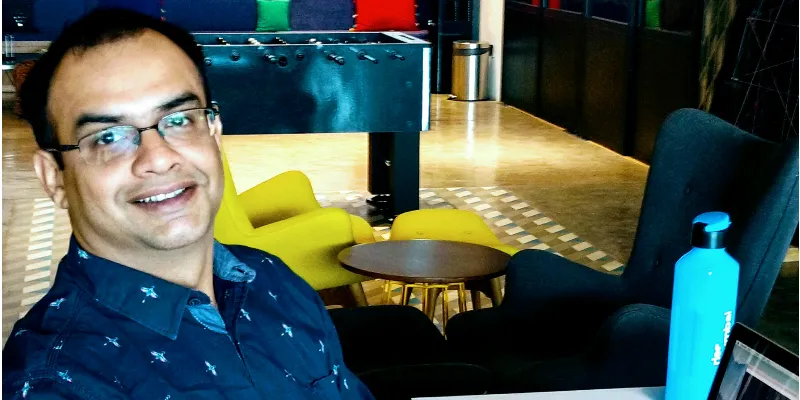
The man
Hersh majored in Maths and Physics from Christ Church College, Kanpur, and completed his MBA in marketing from Symbiosis Institute of Business Management (SIBM), Pune. Most of his jobs had been about launching or scaling up a new business vertical within large firms – like Airtel, where he set up the marketing launch of Airtel in Tamil Nadu in 2002; ICICI, in its home loans vertical and www.money2india.com, its online remittance portal; Reliance Capital, for their international expansion in mutual funds. But, as a business guy in asset management, he wasn’t a fan of repackaging and selling the fund manager's knowledge, insights, and fund performance – because there was very little that one was creating.
Meanwhile, in 2011, while shopping for glasses at a Mumbai store, Hersh realised that comparing multiple looks simultaneously is just not possible – the mirror lets you check out looks in a linear way, one frame at a time, but people want to compare multiple looks simultaneously to decide the best frame to buy. “That’s when I had my Eureka moment. I realised eyewear (and fashion in general) has no effective product for people to compare looks,” he recounts.
“I loved how technology when mixed with user insights, could totally be a gamechanger. So I took the plunge in 2012. It was not easy at all, I had no formal education or experience in tech, no co-founder and no idea how to go about creating the product, but wanted to do it anyway.”
The solution
The initial solution was a web-based virtual trial plug-in that helped users create and compare looks for eye-wear and hence the name Spexy (his company), which is a slang for ‘sexy’ with glasses.
Kicking off on April fool’s day in 2012, since he had no skills in tech, his starting point was to build his tech “A-team” and learn some himself. Through startup events like Startup Weekends, he connected with developers and worked with them on live projects learning the tech product development.
By May 2013, he got cracking with Spexy along with a couple of engineering freshers in the basement of his Mumbai building. Another basement in the same society doubled up as their first office for 10 months. But, after creating the virtual trial plugin for eyewear, most of the big e-commerce firms they met were all encouraging but wanted virtual trial for more categories like jewellery and apparel.
In the meantime, they were making some progress with offline stores, and debuted with the Titan Eye and Foresight Opticals stores. Titan Eye had PCs with camera available for the purpose across the stores. Recalls Hersh,
“We realised that more than the virtual trial, people liked the feature of taking selfies with glasses and comparing their looks. This is the same solution I had imagined while buying glasses, and so we pivoted from a virtual trial plugin to e-com portals to the in-store Digital Mirror.”
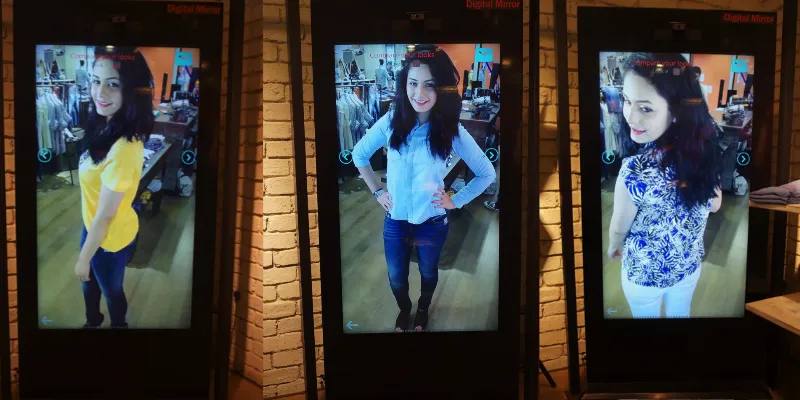
The refinement
Their company’s next and current phase, thus, was an in-store shopping screen – the Digital Mirror. Here’s how it works:
- The 55-inch touch screen kiosk, with Hersh’s own software powering it, is placed outside the changing area and lets shoppers create life-size selfies with the apparel they try.
- Since typically, top angle shots make top-heavy pictures with a bigger face and shoulders and small feet – Hersh instated a (patent-pending) digital imaging technology, offering perspective correction. Digital Mirror also enables a 360-degree view, so users can see how they look wearing something from all angles.
- Once the user has created their looks, that is, selfies with the product, Digital Mirror helps them compare multiple looks simultaneously. The user can further shortlist them and also share them over social media, to get real-time feedback.
- It works offline as well. “This is highly relevant as a lot of fashion stores have limited internet connectivity and in this case, processing happens over local server with internet needed only for sharing features,” notes Hersh.
It gamifies the purchase process – once the user starts playing with their selfies and are hooked, the sale gets assured. And now, stores can get engagement data through their reports, which they use to gauge how store staff is engaging with the users.
Targeting fashion brands and retailers, they charge a monthly fee, including software and hardware charges. The final consumers, though, are the walk-in consumers at the fashion stores. The retailers can thus, also capture user behaviour and preference insights.
Tough decisions
In 2014, Hersh moved to Noida for a co-founder he identified was based there, but who later quit. By 2015, he moved back to Mumbai, finished updating the complete hardware and software product of Digital Mirror for clients across the fashion and accessories market, and worked with leading brands like Pepe Jeans and Ray Ban. “The sales process was slow primarily due to the hardware cost (big touch screen kiosk) and the concept being new and hence proving the benefits versus cost. Investors typically needed a hockey stick growth and a fast scaling product riding on a major theme or something that's worked in the US,” he notes.
They created their first client video at Titan Eye. Says Hersh,
“The product wasn't perfect then but we used the first client and the video to hustle across retail industry chapters and events showcasing and networking. Nasscom liked us and selected us for 'Digital Showcase' at India Leadership Forum. We were introduced to clients by RAI and other regional players,"
Happy endings
Currently, Digital Mirror has over 2,300 daily users across its installations. The bootstrapped startup is clocking Rs 5 lakh monthly and growing 28 percent YoY. The target market size for Indian fashion retail for apparels is over $50 billion and much bigger globally. The space has a few players globally trying different approaches. Globally, startups like Fits.me and Me-Ality are using body scanning and measurement approaches which can create user profiles for better fitting, but require a scanning device. A company named Styku created a portable 3D body scanning platform – which have all played out in interesting manners, but are purely B2B tools.






